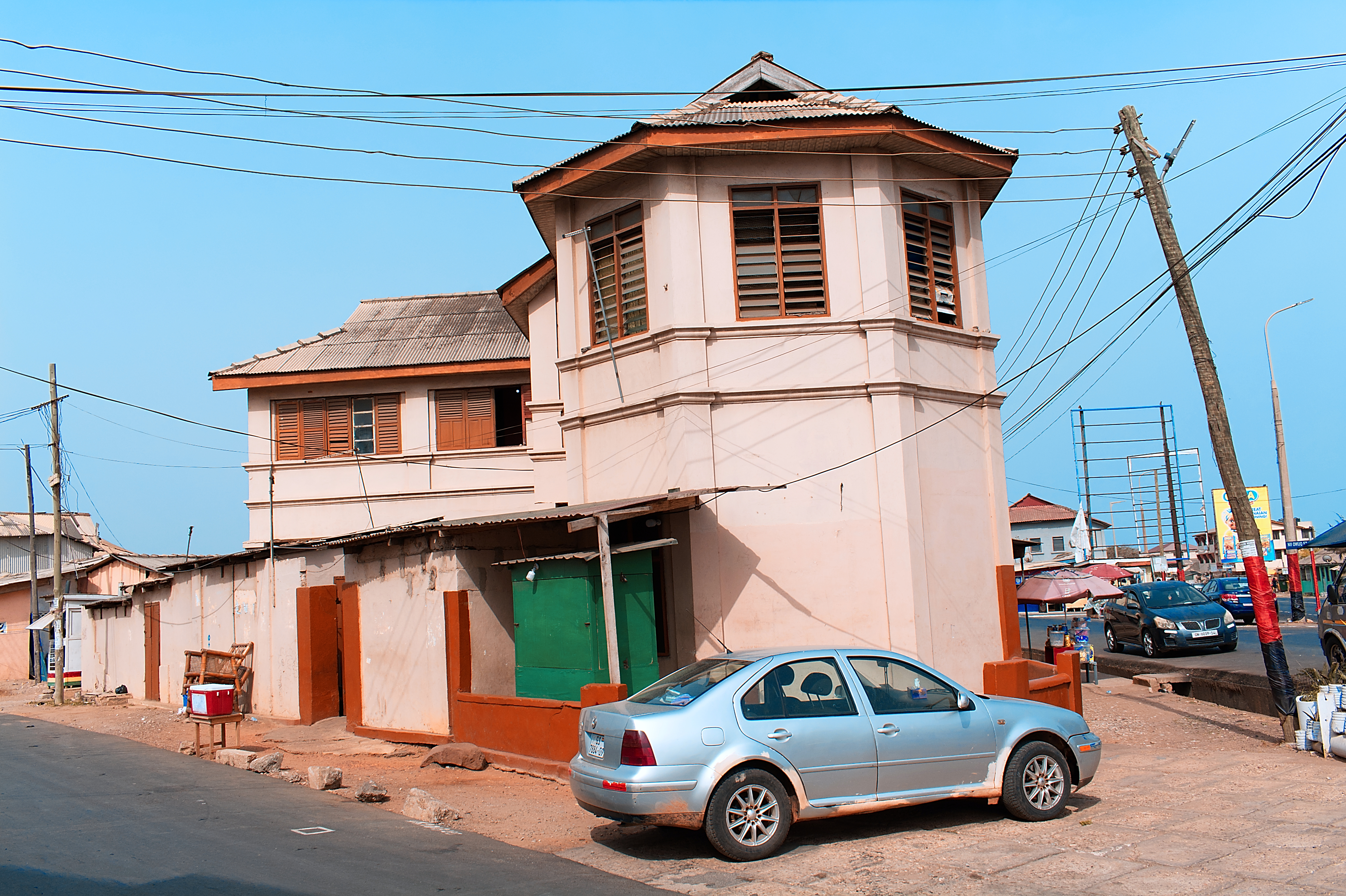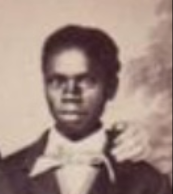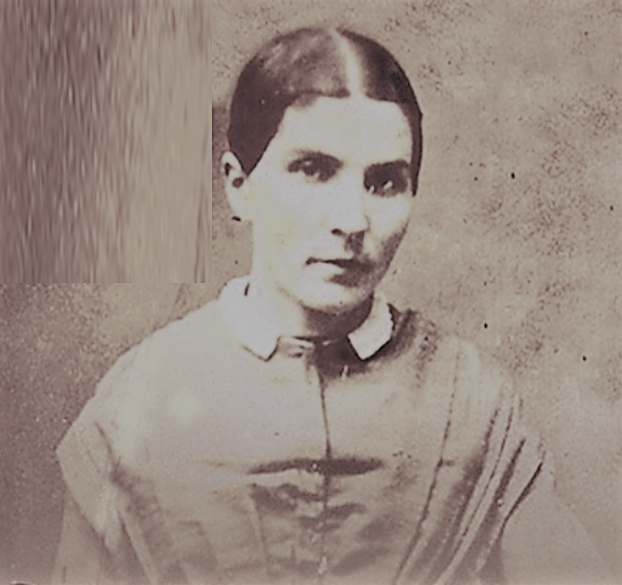|
Rose Ann Miller
Rose Ann Miller (16 March 1836 – 1930) was a Jamaican-born educator pioneer who worked extensively on the Gold Coast in both Basel Mission and government-run schools. As a child in 1843, Miller relocated to the Gold Coast with her parents and siblings, as part of a group of 24 West Indian settlers recruited by the Danish minister, Andreas Riis and the Basel Mission to augment evangelism efforts in Ghana. Early life and education Rose Ann Miller was born on 16 March 1836 on Pepper Plantage in Fairfield, Jamaica, to Joseph Miller (born 1800), a farm worker and his wife, Mary Miller (born 1811), both of whom were freed slaves. Her parents were both congregants of the Fairfield Moravian Church, started on 1 January 1826, in Fairfield near Spur Tree in Manchester Parish, Jamaica. She had two younger siblings, brother Robert Miller (born 29 May 1839) and sister, Catherine Miller (born 1 July 1842) both on Pepper Plantage. In spring 1843, a seven-year old Rose Ann Miller joined ... [...More Info...] [...Related Items...] OR: [Wikipedia] [Google] [Baidu] |
Jamaica Province Of The Moravian Church
The Jamaica Province of the Moravian Church (formally The Moravian Church in Jamaica and the Cayman Islands) is part of the worldwide Moravian Church Unity. History 1754–1809 The beginning The work of the Moravian Church in Jamaica started with the arrival on 1754 -12-07 of missionaries Zecharias Caries, Thomas Shallcross and Gotlieb Haberecht from England at the invitation of the Foster and Barham families, owners of several plantations in St Elizabeth. They landed on the coast of St. Elizabeth, deliberately shunning the towns and opting to remain mostly in the rural areas to serve the large slave population. Their first base was on the Bogue estate. During the first couple of years they had success in their work. Then, in 1755 Br Gottlieb Haberecht died and on 1756-12-24 his replacements Christian Rauch and ? Schulz arrived from America where Rauch had spent fifteen years working amongst Native Americans. The new arrivals disagreed with Caries and Shallcross about the con ... [...More Info...] [...Related Items...] OR: [Wikipedia] [Google] [Baidu] |
Osu, Accra
Located about east of the central business district, Osu is a neighborhood in central Accra, Ghana. It is locally known as the "West End" of Accra. Bounded to the south by the Gulf of Guinea, Osu's western boundary is the Independence Avenue. Osu is separated from the northern district of Labone by Ring Road. Due to its establishment as a settlement in the 17th century, Osu has a mix of houses dating from the early 20th century and modern office towers. Ringway Estates, a gated residential community between Gamel Abdul Nasser Avenue and Cantonments Road is located in the western section of Osu. The main thoroughfare, Cantonments Road (colloquially known as Oxford Street) has large supermarkets and appliance shops. At its southern end is the site of the 17th-century Fort Christiansborg, a former Danish colonial fort, which formerly housed the seat of government before being relocated to Golden Jubilee House. Economy The head office of Starbow is in Osu. [...More Info...] [...Related Items...] OR: [Wikipedia] [Google] [Baidu] |
David Asante
David Asante (23 December 1834 – 13 October 1892) was a philologist, linguist, translator and the first Akan native missionary of the Basel Evangelical Missionary Society. He was the second African to be educated in Europe by the Basel Mission after the Americo-Liberian pastor, George Peter Thompson. Asante worked closely with the German missionary and philologist, Johann Gottlieb Christaller and fellow native linguists, Theophilus Opoku, Jonathan Palmer Bekoe, and Paul Staudt Keteku in the translation of the Bible into the Twi language. Early life and education David Asante was born on 23 December 1834 at Akropong-Akuapem, capital of Akuapem, a state 30 miles (48 km) northeast of Accra. His father was Nana Owusu Akyem of the ruling Asona clan and direct cousin of the then Okuapehene, Nana Adum Tokori. Asante's father was a personal friend of Andreas Riis, the Danish minister and first Basel missionary-survivor on the Gold Coast. David Asante's cousin was his fello ... [...More Info...] [...Related Items...] OR: [Wikipedia] [Google] [Baidu] |
Johann Gottlieb Christaller
Johann Gottlieb Christaller (19 November 1827 – 16 December 1895) was a German missionary, clergyman, ethnolinguist, translator and philologist who served with the Basel Mission. He was devoted to the study of the Twi language in what was then the Gold Coast, now Ghana. He was instrumental, together with African colleagues, Akan linguists, David Asante, Theophilus Opoku, Jonathan Palmer Bekoe, and Paul Keteku in the translation of the Bible into the Akuapem dialect of Twi. Christaller was also the first editor of the Christian Messenger, the official news publication of the Basel Mission, serving from 1883 to 1895. He is recognised in some circles as the "founder of scientific linguistic research in West Africa". Early life and education Johann Christaller was born in Winnenden, near Stuttgart in Germany. His father was a tailor and a subsistence farmer of modest background, who was keen on books and had a large personal library with more than 2000 books. Johann Christalle ... [...More Info...] [...Related Items...] OR: [Wikipedia] [Google] [Baidu] |
Presbyterian College Of Education, Akropong
The Presbyterian College of Education, Akropong, is a co-educational teacher-training college in Akropong in the Akwapim district of the Eastern Region of Ghana. It has gone through a series of previous names, including the Presbyterian Training College, the Scottish Mission Teacher Training College, and the Basel Mission Seminary. The college is affiliated to the University of Education, Winneba. History The first institution of higher education in Ghana, it was founded by the Basel Mission as the Basel Mission Seminary on 3 July 1848 and fondly referred to as the ‘Mother of Our Schools’. The college was the first institution of higher learning to be established to train teacher-catechists for the eventual Presbyterian Church of the Gold Coast. The college is the second oldest higher educational institution in early modern West Africa after Sierra Leone’s Fourah Bay College, founded in 1827. For more than 50 years, it remained the only teacher training institution in th ... [...More Info...] [...Related Items...] OR: [Wikipedia] [Google] [Baidu] |
Akan People
The Akan () people live primarily in present-day Ghana and Ivory Coast in West Africa. The Akan language (also known as ''Twi/Fante'') are a group of dialects within the Central Tano branch of the Potou–Tano subfamily of the Niger–Congo family.Languages of the Akan area: papers in Western Kwa linguistics and on the linguistic geography of the area of ancient. Isaac K. Chinebuah, H. Max J. Trutenau, Linguistic Circle of Accra, Basler Afrika Bibliographien, 1976, pp. 168. Subgroups of the Akan people include: the Agona, Akuapem, Akwamu, Akyem, Ashanti, Bono, Fante, Kwahu, Wassa, and Ahanta. The Akan subgroups all have cultural attributes in common; most notably the tracing of matrilineal descent, inheritance of property, and succession to high political office. Oral tradition and Ethnogenesis Akan people are believed to have migrated to their current location from the Sahara desert and Sahel regions of Africa into the forest region around the 11th century. Many Akans ... [...More Info...] [...Related Items...] OR: [Wikipedia] [Google] [Baidu] |
Filial Piety
In Confucianism, Chinese Buddhism, and Daoist ethics, filial piety (, ''xiào'') (Latin: pietas) is a virtue of respect for one's parents, elders, and ancestors. The Confucian ''Classic of Filial Piety'', thought to be written around the late Warring States-Qin-Han period, has historically been the authoritative source on the Confucian tenet of filial piety. The book—a purported dialogue between Confucius and his student Zengzi—is about how to set up a good society using the principle of filial piety. Filial piety is central to Confucian role ethics. In more general terms, filial piety means to be good to one's parents; to take care of one's parents; to engage in good conduct, not just towards parents but also outside the home so as to bring a good name to one's parents and ancestors; to show love, respect, and support; to display courtesy; to ensure male heirs; to uphold fraternity among brothers; to wisely advise one's parents, including dissuading them from moral unrighte ... [...More Info...] [...Related Items...] OR: [Wikipedia] [Google] [Baidu] |
Autarky
Autarky is the characteristic of self-sufficiency, usually applied to societies, communities, states, and their economic systems. Autarky as an ideal or method has been embraced by a wide range of political ideologies and movements, especially left-wing ideologies like African socialism, mutualism, war communism, communalism, swadeshi, syndicalism (especially anarcho-syndicalism), and left-wing populism, generally in an effort to build alternative economic structures or to control resources against structures a particular movement views as hostile. Conservative, centrist and nationalist movements have also adopted autarky in an attempt to preserve part of an existing social order or to develop a particular industry. Proponents of autarky have argued for national self-sufficiency to reduce foreign economic, political and cultural influences, as well as to promote international peace. Economists are generally supportive of free trade. There is a broad consensus among economist ... [...More Info...] [...Related Items...] OR: [Wikipedia] [Google] [Baidu] |
Saint Petersburg
Saint Petersburg ( rus, links=no, Санкт-Петербург, a=Ru-Sankt Peterburg Leningrad Petrograd Piter.ogg, r=Sankt-Peterburg, p=ˈsankt pʲɪtʲɪrˈburk), formerly known as Petrograd (1914–1924) and later Leningrad (1924–1991), is the second-largest city in Russia. It is situated on the Neva River, at the head of the Gulf of Finland on the Baltic Sea, with a population of roughly 5.4 million residents. Saint Petersburg is the fourth-most populous city in Europe after Istanbul, Moscow and London, the most populous city on the Baltic Sea, and the world's northernmost city of more than 1 million residents. As Russia's Imperial capital, and a historically strategic port, it is governed as a federal city. The city was founded by Tsar Peter the Great on 27 May 1703 on the site of a captured Swedish fortress, and was named after apostle Saint Peter. In Russia, Saint Petersburg is historically and culturally associated with t ... [...More Info...] [...Related Items...] OR: [Wikipedia] [Google] [Baidu] |
Boarding School
A boarding school is a school where pupils live within premises while being given formal instruction. The word "boarding" is used in the sense of "room and board", i.e. lodging and meals. As they have existed for many centuries, and now extend across many countries, their functioning, codes of conduct and ethos vary greatly. Children in boarding schools study and live during the school year with their fellow students and possibly teachers or administrators. Some boarding schools also have day students who attend the institution by day and return off-campus to their families in the evenings. Boarding school pupils are typically referred to as "boarders". Children may be sent for one year to twelve years or more in boarding school, until the age of eighteen. There are several types of boarders depending on the intervals at which they visit their family. Full-term boarders visit their homes at the end of an academic year, semester boarders visit their homes at the end of an acade ... [...More Info...] [...Related Items...] OR: [Wikipedia] [Google] [Baidu] |
Aburi
Aburi is a town in the Akuapim South Municipal District of the Eastern Region (Ghana), Eastern Region of south Ghana famous for the Aburi Botanical Gardens and the Odwira festival.Touring - Eastern Region . touringghana.com. Aburi has a population of 18,701 people as of 2013. Transport Road Aburi is north east of Accra, and the journey from Accra to Aburi is about 45 mins (will be less when the dual carriage road from Tetteh Quarshie Circle to Adenta Barrier is completed by 2014). Due to the altitude of Aburi, the climate is a lot cooler than neighbouring Accra. The road which climbs the hillside to Aburi is a toll road, with the current toll being 0.50 Ghc for a car, 1.00 Ghc for a 4x4. There is a higher charge for vans and lorr ...[...More Info...] [...Related Items...] OR: [Wikipedia] [Google] [Baidu] |
Rosina Widmann
Rosina Widmann, née Binder, (13 November 1826 – 14 November 1908) was a German educator and Basel missionary-wife who opened a girls’ school at Akropong in pre-colonial Ghana. She was the first exemplar of a European missionary-wife who worked in Ghana for a long period. Between 1847 and 1877, Widmann lived on the Gold Coast and was actively involved in both the Christian ministry and women's vocational education. Her sojourn in Akropong was in three phases: January 1847 to April 1850; December 1851 to June 1867 and January 1869 to spring 1877. Widmann was also a prolific writer, noted for her detailed diary entries of her thoughts and travels, everyday life as a missionary-wife, her interactions with her school pupils and with the Akan peoples of Akropong, providing a vivid narrative of nineteenth century European missionary activity in colonial Ghana, situated against the Akan culture. Early life Childhood and education Rosina Binder was born on 13 November 1826 ... [...More Info...] [...Related Items...] OR: [Wikipedia] [Google] [Baidu] |






